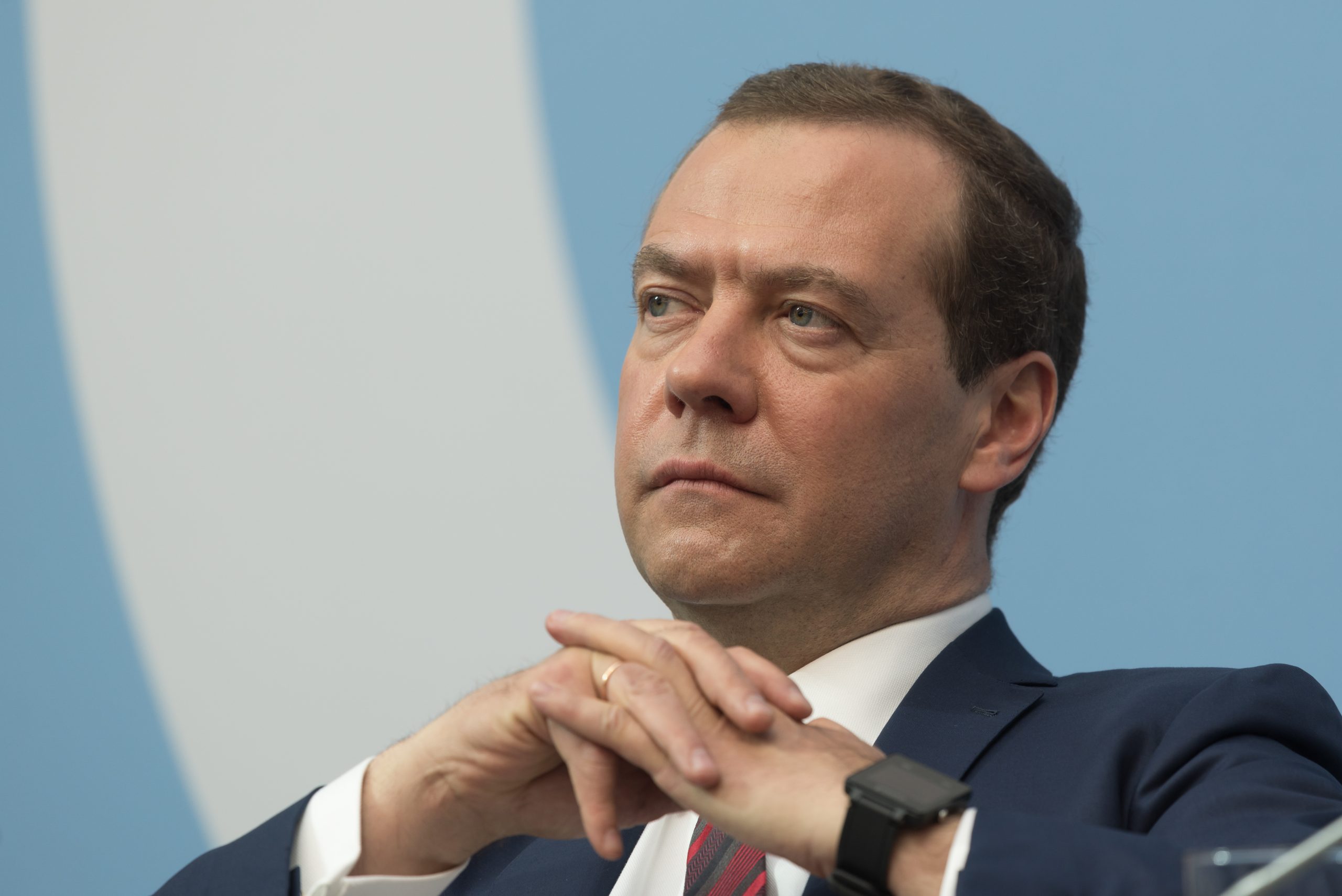Dmitry Medvedev .jpg

Russia has not been shy about threatening the use of nuclear weapons against perceived enemies. They have a long history of flying nuclear bombers through foreign airspace without warning. They regularly sail nuclear capable warships and submarines through other countries territorial waters without notice. Putin is fond of bragging about horrendous new nuclear weapons such as a stealth undersea nuclear-armed drone that could sail right into any harbor in the world undetected. They have talked about and tested a nuclear-powered cruise missile that could fly for years without refueling.
Russia’s nuclear policy states that if they are fighting a ground war against NATO and are being defeated on the battlefield with conventional weapons, they would consider the first use of tactical nuclear weapons on the battlefield.
Recently, Putin bragged about sending tactical nuclear weapons to Belarus for possible use against Ukraine. A senior ally of President Vladimir Putin warned on Thursday that any Ukrainian attacks on missile launch sites inside Russia with arms supplied by the United States and its allies would risk a nuclear response from Moscow.
Former Russian President Dmitry Medvedev cast himself as a liberal modernizer when he was president from 2008-2012, but now presents himself as one of the fiercest anti-Western Kremlin hawks. Medvedev is currently deputy chairman of Russia's Security Council. He recently said that some Ukrainian military commanders were considering hitting missile launch sites inside Russia with Western-supplied long-range missiles. He did not give more details of the alleged plans and there was no immediate reaction from Ukraine.
He said, "What does this mean? It means only one thing – they risk running into the action of paragraph 19 of the fundamentals of Russia's state policy in the field of nuclear deterrence. This should be remembered.”
Paragraph nineteen of Russia's 2020 nuclear doctrine sets out the conditions under which a Russian president would consider using a nuclear weapon. They could be used as a response to an attack using nuclear or other weapons of mass destruction, or to the use of conventional weapons against Russia “when the very existence of the state is put under threat.” Medvedev specifically mentioned point "g" of paragraph nineteen which deals with the nuclear response to a conventional weapons attack.
Putin is the decision-maker when it comes to Russia's vast nuclear arsenal. However, diplomats say Medvedev's views give an indication of hawkish thinking at the top of the Kremlin which has cast the war as an existential struggle with the West.
Kremlin critics have often dismissed some of Medvedev's nuclear threats in the past as attempts to grab attention or to dissuade the West from supplying Ukraine with more weapons. The United States and its allies have recently approved nearly $250 billion in military and other support for Ukraine.
The risk of nuclear escalation has hung over the Ukraine war since Russia invaded its neighbor in February 2022. The U.S. feared a Russian nuclear escalation in late 2022. Jake Sullivan is the White House national security adviser. He communicated to Russia concerns about any steps towards the use of a nuclear device in Ukraine.
Russia and the United States are by far the world's biggest nuclear powers. Russia controls about five thousand eight hundred and ninety nuclear warheads while the U.S. controls about five thousand two hundred and forty nuclear warheads, according to the Federation of American Scientists.